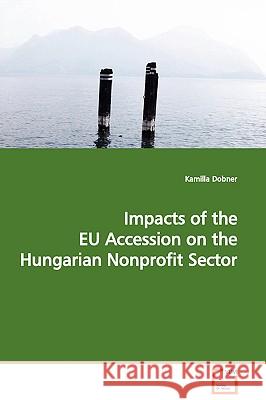Impacts of the EU Accession on the Hungarian Nonprofit Sector » książka
Impacts of the EU Accession on the Hungarian Nonprofit Sector
ISBN-13: 9783639012804 / Angielski / Miękka / 2008 / 60 str.
Many people think that economy is just about numbers, mathematics, theories, etc. In order to change their mind, these people should study the nonprofit sector. Obviously, if we want to understand how this sector operates, we have to study figures, but a significant part of the areas connected to this sector cannot be "measured" by numbers. When studying the voluntary sector, we meet personal problems, personal needs, different types of people from all parts of the life with their hobbies and habits, communication at citizen level, solidarity and, first of all, we feel our personal responsibility of the whole community. This study tries to describe this multicoloured sector in general and to compare its status before and after Hungarys entry to the European Union. To understand better the topic, first we have to give a short overview of the terminology issues, the legal forms and major functions of the nonprofit organizations, and the changes of the EU policy towards the third sector. In the next part of the thesis, we will summarize the history of the voluntary organizations, the civil expectations towards EU membership, including two interesting scenarios about the effects of the EU accession on the sector. The fastest and most tangible effect of the accession is the possibility to participate in EU tenders; therefore, the paper will emphasize this part of the recent developments and study it in detail. The concluding chapter tries to discuss areas to develop and questions waiting for response.











